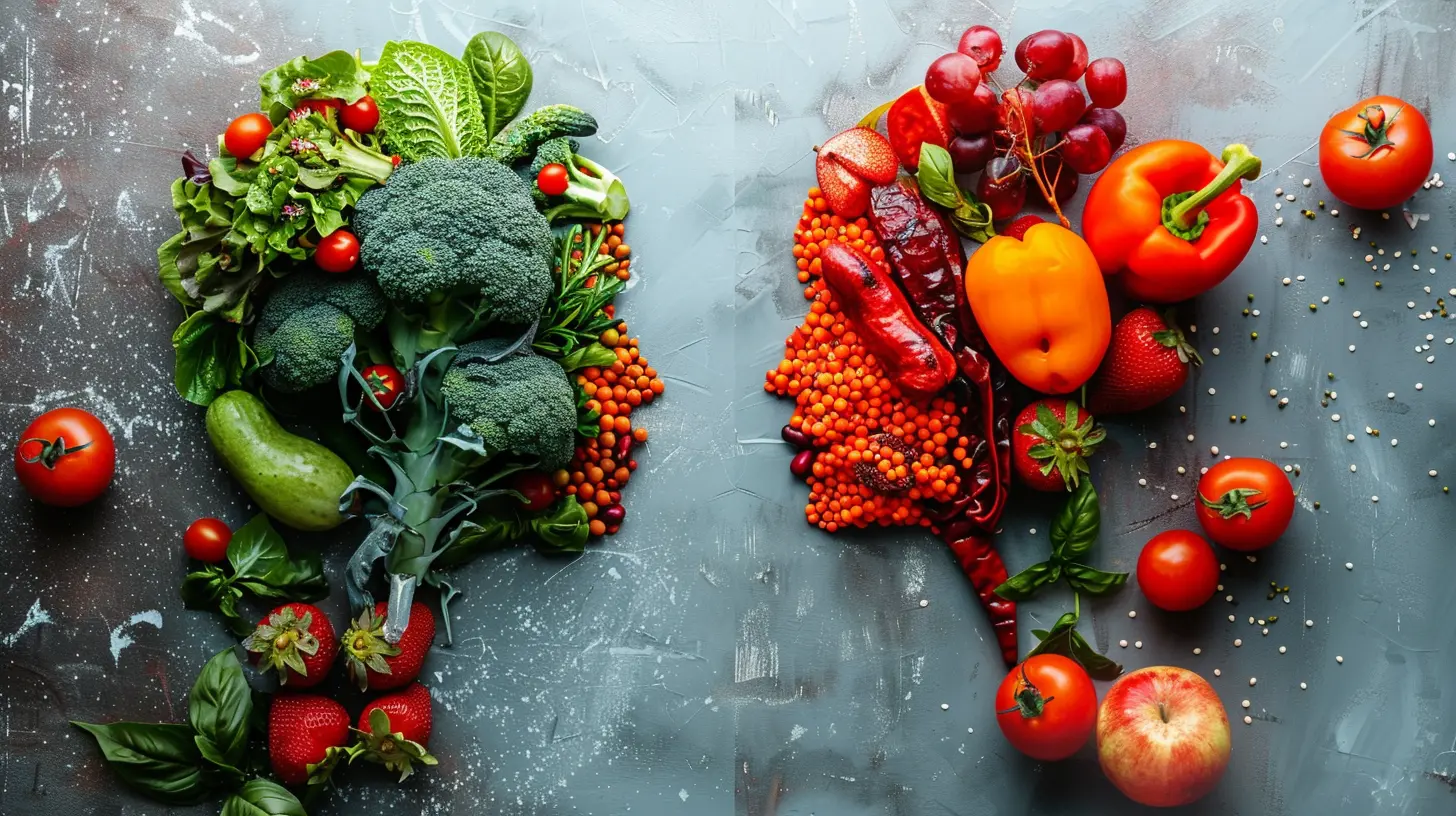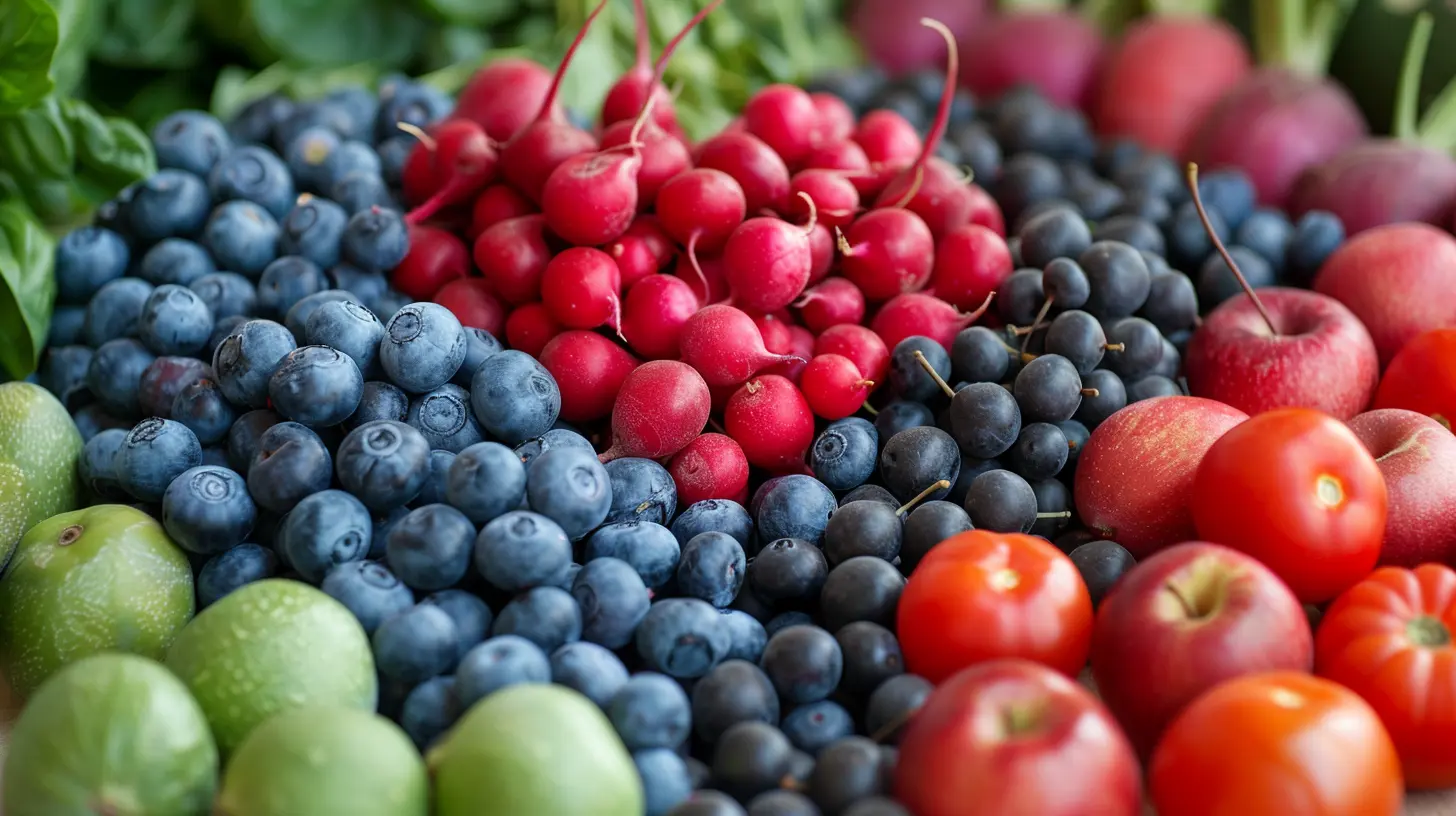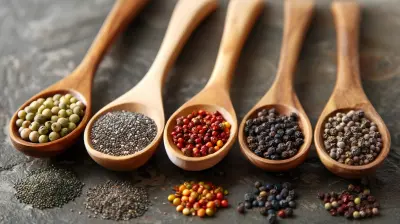Veganism and Hormonal Balance: Eating for Optimal Health
18 June 2025
Let’s be real – hormones can feel like they have a mind of their own. One day you're on top of the world, the next day you're crying over a puppy commercial. Sound familiar? Yep, we’ve all been there. But here's a little secret: what you eat plays a HUGE role in how your hormones behave.
And if you’re leaning toward or already living that plant-based life, you might be wondering – can veganism support hormonal balance? Or could it throw your body entirely out of whack?
Well, sit tight because we’re diving deep into how veganism and hormonal balance are connected, and how eating plant-based might just be one of the best ways to get your hormones working for you – not against you.

What Are Hormones, Anyway?
Before we unpack how veganism affects hormones, let's do a quick recap. Hormones are chemical messengers produced by your glands. They travel through your bloodstream and tell various organs what to do.Everything from your mood, metabolism, energy level, sex drive, sleep, hunger, and even how your skin looks – that’s hormones controlling the show.
Think of them as the conductors of the body’s orchestra. If one instrument (aka hormone) is out of tune, the whole performance can sound like a mess. Balancing them is key.

How Diet Influences Hormonal Balance
Food is more than fuel – it’s information for your body. What you eat directly impacts hormone production, signaling, and balance. Diets high in processed foods, refined sugar, saturated fats, and animal products often throw hormones into chaos.But a well-planned vegan diet? It tends to do the opposite.
Why?
Because it’s naturally rich in fiber, antioxidants, phytonutrients, and healthy fats – all crucial for keeping hormones in sync.
Veganism: A Hormone-Friendly Lifestyle?
Okay, let’s cut to the chase. Here’s how veganism might support hormonal balance.1. Lower Estrogen Dominance
Animal products, especially conventionally raised meat and dairy, contain naturally occurring hormones. Consuming them in large amounts can lead to high levels of estrogen in the body – known as estrogen dominance. This imbalance can cause bloating, mood swings, irregular periods, weight gain, and other unwanted symptoms.A plant-based diet eliminates these added hormones, potentially helping your body normalize its estrogen levels.
2. Rich in Fiber That Flushes Excess Hormones
Guess what helps eliminate excess estrogen from the body? Fiber! And guess where you find fiber? In plants – lots and lots of plants.Fiber binds to old hormones, particularly estrogen, and flushes them out through digestion. This is vital – because you don’t want those excess hormones hanging around, messing with your system.
Meat, dairy, and eggs contain zero fiber. Like, nada. So switching to a plant-based diet gives your body the tools to detox naturally and keep things flowing.
3. Banishes Bad Fats – Boosts the Good Ones
Healthy fats are like the golden ticket for hormone production. Your body needs fats to make hormones, especially sex hormones like estrogen, progesterone, and testosterone.Vegan diets packed with avocado, nuts, seeds, olive oil, and coconut milk provide the perfect building blocks for hormone production – without the unhealthy saturated fats and trans fats found in many animal products.

The Crucial Role of Specific Nutrients
Let’s get into the nitty-gritty. While veganism offers many benefits, you've got to be intentional about it. Getting the right nutrients is key to keeping your hormones sharp and balanced.Here are the must-haves:
1. Omega-3 Fatty Acids
These anti-inflammatory superstars support brain function, mood stability, and hormonal communication. They also help regulate your menstrual cycle and reduce PMS.Find them in flaxseeds, chia seeds, walnuts, hemp seeds, and algae-based omega-3 supplements.
2. Vitamin B12
B12 is critical for energy, mood, and hormone synthesis. It’s not naturally found in plants, so supplementation is essential.Don’t skimp here. A deficiency can lead to fatigue, mood swings, and even hormonal disruptions.
3. Iron and Zinc
Both support thyroid health, immune function, and hormone metabolism. Go for lentils, chickpeas, pumpkin seeds, tofu, and quinoa. Pair iron-rich foods with vitamin C (like citrus or bell peppers) to enhance absorption.4. Iodine
Your thyroid gland LOVES iodine – it literally needs it to function. Sea vegetables like nori, dulse, and iodized salt are your best bets.5. Vitamin D
Low levels of vitamin D have been linked to hormonal imbalances, mood disorders, and autoimmune conditions. Get some sun and consider a plant-based D3 supplement, especially in winter months.Balancing Blood Sugar = Balancing Hormones
If your blood sugar is on a rollercoaster, your hormones are, too.Spiking and crashing blood sugar leads to excessive insulin production, which can mess with estrogen, testosterone, and cortisol levels. Balanced blood sugar means happy hormones.
Here’s how veganism helps:
- Whole grains like oats, quinoa, and brown rice
- High-fiber fruits and veggies
- Plant-based proteins (hello, lentils and tofu!)
These foods digest slowly, keep blood sugar stable, and keep those cravings under control.
Managing Stress and Cortisol with Plants
Let’s not ignore the stress hormone – cortisol. Chronic stress cranks it up, and high cortisol can disrupt sleep, sex drive, digestion, and even belly fat storage.Enter the plant-based diet. It’s packed with magnesium, B vitamins, and antioxidants that combat stress and reduce inflammation.
Foods like dark leafy greens, bananas, nuts, and whole grains support a calm nervous system and more stable cortisol production.
Does Veganism Help With PMS or Menopause?
Short answer: it can!For PMS:
- A fiber-rich, low-fat vegan diet can reduce estrogen levels and ease symptoms like cramps, bloating, and breast tenderness- Phytoestrogens (plant hormones) in flaxseeds and soy help modulate hormone fluctuations
During Menopause:
- Plant-based diets rich in phytoestrogens may help ease hot flashes, mood swings, and bone loss- Anti-inflammatory foods support joint health, heart health, and brain clarity
It’s like giving your body a soft landing instead of a crash course in hormonal chaos.
The Gut-Hormone Connection (It’s Real)
Here’s something not enough people talk about: your gut and hormones are seriously linked.The gut microbiome influences how you metabolize hormones, especially estrogen. When your gut is thriving, your body can better eliminate waste, regulate hormone levels, and create neurotransmitters like serotonin (hello, happy hormone!).
Plant-based diets feed your gut with prebiotics and fiber, promoting a healthy balance of bacteria that keeps things in check.
Are There Risks or Downsides?
Hold up – it’s not all sunshine and chia seeds. A vegan diet can misfire if not done properly.Going plant-based without planning can lead to:
- Nutrient deficiencies (hello, B12, iron, iodine)
- Too many processed vegan foods (plant-based junk food is still junk food)
- Imbalanced macros (not enough protein or healthy fats)
So, if your idea of veganism is living off fries and vegan cookies, your hormones won’t thank you.
Balance is key. Whole foods, variety, and smart supplementation go a long way.
Pro Tips for Hormonal Harmony on a Vegan Diet
Here’s the cheat sheet you’ve been waiting for:✅ Eat a rainbow – colorful fruits and veggies provide different nutrients
✅ Add flaxseeds and soy for plant-based estrogen support
✅ Stay consistent with B12, D3, and omega-3 supplementation
✅ Avoid processed vegan snacks – they mess with your insulin
✅ Pair protein and fiber at every meal to balance blood sugar
✅ Use adaptogens like ashwagandha or maca to support adrenal function
✅ Eat fermented foods (like kimchi, sauerkraut, tempeh) to boost gut health
Final Thoughts: Is Veganism Right for Your Hormones?
Here’s the truth: when done right, a vegan diet supports hormonal balance like a boss. It helps flush out excess hormones, reduces inflammation, balances blood sugar, and fuels your gut.But you’ve got to be strategic. Take care to get the key nutrients, build well-rounded meals, and listen to your body.
Remember, hormones don’t just run the show – they are the show. And with a thoughtful, whole-food vegan diet, you can be the director of your own health story.
So whether you're already plant-powered or thinking of making the switch, just know this: eating for hormonal balance on a vegan diet is 100% possible. And your body? It’ll thank you with better energy, better moods, and better health.
all images in this post were generated using AI tools
Category:
Vegan DietAuthor:

Tiffany Foster
Discussion
rate this article
2 comments
Signe McLemore
Veganism challenges traditional dietary norms, offering a path to hormonal harmony through plant-based nutrients. By embracing whole foods, individuals not only nourish their bodies but also foster a deeper connection to their health, illustrating how choices can profoundly impact both well-being and the environment.
October 31, 2025 at 5:33 AM

Tiffany Foster
Thank you for your insightful comment! Veganism indeed promotes hormonal balance and overall well-being, highlighting the power of conscious dietary choices for personal health and the planet.
Rosalind Richardson
Embracing a vegan lifestyle can be a transformative journey towards hormonal balance and optimal health. By nourishing your body with vibrant plant-based foods, you empower yourself to thrive. Remember, every small choice contributes to your well-being. Celebrate each step you take towards a healthier, balanced life! You've got this!
June 24, 2025 at 4:13 AM

Tiffany Foster
Thank you for your encouraging words! Every step toward a plant-based lifestyle indeed supports our health and hormonal balance. Let’s keep inspiring each other on this journey!


